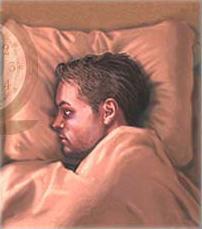
Few people, including sufferers, health professionals and health authorities, recognize insomnia as a
serious problem requiring treatment.
The kind of treatment that usually does take place is
self-medication -a sleeping pill here, a little melatonin there, perhaps downed with some alcohol.
However, Prof. Hussain Habil, head of the Department of Psychological Medicine at University of Malaya, cautions that self-
medication could worsen insomnia and cause more
side effects than good ones.
"I have patients who became addicted to sleeping pills before they managed to get proper treatment from my clinic," Habil said.
The biggest problem with self-medication is that it overlooks one major aspect, which is identifying the cause of the
insomnia. It could be caused by a multitude of
factors, including medical conditions, psychological problems or environmental changes.
Psychiatrists treating insomnia usually prescribe non-pharmacological
treatments first, before resorting to medication.
Non-pharmacological treatments include:-Stimulus control therapy: to help the patient
associate the bedroom with sleep and relaxation only.
-Paradoxical intention therapy: making the patient
stay awake as long as possible to reduce anxiety about sleeplessness.
-Relaxation therapies: relaxation of muscles to reduce anxiety-associated arousal that could inhibit sleep.
-Cognitibehavioralral therapy: changing faulty beliefs and
attitudes about sleep to reduce emotional stress and dysfunctional cognitions.
-Sleep restriction therapy: increasing
sleep efficiency by restricting naps and time spent in bed not sleeping.
-Temporal control therapy: getting up at the
same time every day, even during weekends.
-Sleep hygiene: tips to improve
sleeping habits may be effective when used together with other therapies.
Medications are considered
second-line treatment, because they tend to produce more side effects and have short-term benefits only.
Nonetheless, over-the-counter medications like antihistamines, or prescription medications like non-benzodiazepines and benzodiazepines, are sometimes needed in
managing insomnia.
 June 24, 2005 -- has long been thought of as a symptom of depression, but new research shows it may actually trigger the mental disorder.
June 24, 2005 -- has long been thought of as a symptom of depression, but new research shows it may actually trigger the mental disorder. 

